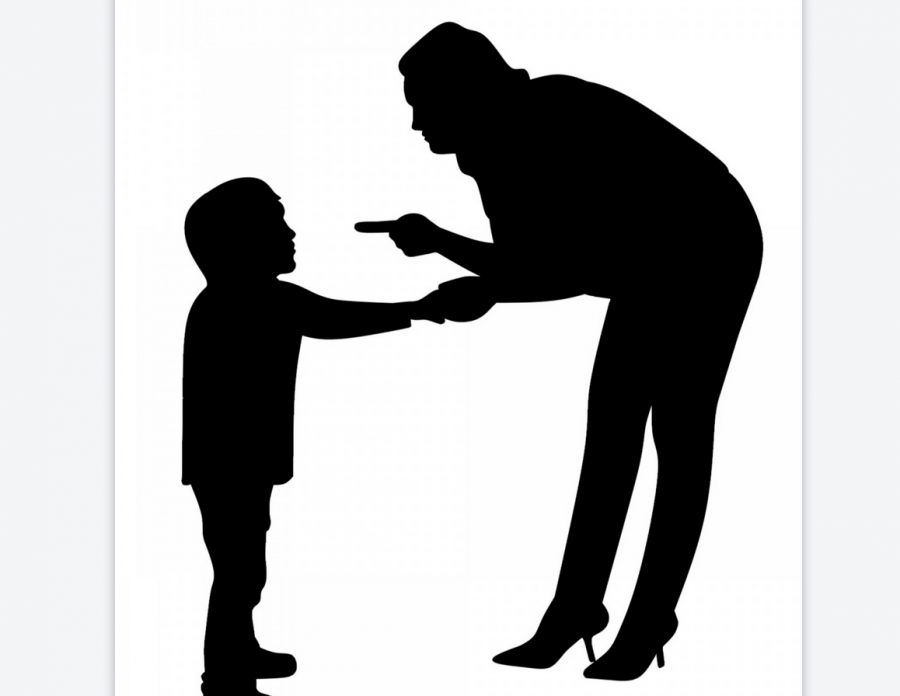Overbearing parents may be a threat to the success of a generation
December 7, 2018
When high schoolers’ parents were children their parents may have said “go out and play and be back by dinner time.” Most children were allowed to go outside to play and wander the neighborhood and most teenagers stayed out for unspecified hours with their friends.
But many Kinkaid students can agree that parents nowadays are overprotective and track teenager’s every move.
2018 is a different time. People no longer feel comfortable letting their kids roam outside. However, this is arguably misguided. The world has never and will never be completely safe, but that does not mean that parents should keep their children from experiencing it. Technology is a significant factor in the apparent change between parents then and parents now. Because parents have a better grasp on their child’s whereabouts, they feel as though they can control them.
In the “good old days” when parents did not have a way to reach their children when they were out, they had no choice but to trust that their child was safe. Now, parents can text and call to interrogate their children: Where are you? Who are you with? When will you be home? Are you with a member of the opposite sex? Have you been drinking? However, the texting and calling is admittedly just an innocent gesture coming from a concerned parent.
What becomes concerning is when parents resort to reading their child’s text messages or physically tracking their children from their phone with apps such as “Life360” or “Find my iPhone.” These available apps are free and allow parents to track their child at all times through their phone.
Young children, of course, require a large amount of supervision from their parents because they are too young to make wise decisions on their own. However, teenage years warrant a certain amount of independence. The role of parents to teenagers should be to make sure their teenager is healthy and happy. However, helicopter parents make it their responsibility to make crucial decisions for their teenager and never let him or her out of their sight. If children are barred from making any bad decisions as teenagers, then they will enter adulthood without having learned valuable lessons through making mistakes at a young age.
“We want so badly to help them by shepherding them from milestone to milestone and by shielding them from failure and pain. But overhelping causes harm. It can leave young adults without the strengths of skill, will and character that are needed to know themselves and to craft a life,” argued Julie Lythcott-Haims in her book, “How to Raise an Adult: Break Free of the Overparenting Trap and Prepare Your Kid for Success.”
Parents have their child’s best interest in mind, but high schoolers are teenagers who will soon be going off to college and helicopter parents may be hindering their ability to make wise decisions when they are unsupervised and no longer have their parents around to tell them what to do. Parents try so hard to make sure that their children succeed, but the success of a child is something that needs to be achieved by the child.
Teenage years are vital for self discovery. Teenagers should be able to experience new things and learn what they love and what they don’t love. However, overbearing parents often take these life changingdecisions into their own hands; therefore, depriving their child of the opportunity of self discovery at a young age.
In addition, a study at the Center for Collegiate Mental Health at Penn State University, based on a survey of more than 100,000 students, suggests that significant source of anxiety and depression in college students is overprotective or “helicopter” parents. It has been suggested that children who were sheltered by their parents grow into adults who possess a low tolerance to adversity, poor social skills, a lack of independence, and a difficulty making decisions for themselves. These children are also very uncomfortable in the face of change and unfamiliar situations.
Overprotective parents undermine a child’s decision-making abilities and damage their confidence by making many of their child’s decisions for them and leading them to believe that they are incompetent and unable to achieve anything on their own. Research by the American Psychological Association shows that “children with helicopter parents may be less able to deal with challenging demands of growing up,” said Nicole B. Perry, leader of the study. She also concluded that “children who cannot regulate their emotions and behavior effectively are more likely to act out in the classroom, to have a harder time making friends in school.” Because overprotected children tend to be socially awkward, they are also easy targets to bullies. In addition, researchers from the University College London found that people who said that, during childhood, their parents had intruded their privacy and encouraged dependence were, as adults, more likely to have low scores in surveys of happiness and general well being. A Pew Research survey further found that “40 percent of 18- to 24-year-olds currently live with their parents, and the vast majority of them say they did not move back home because of economic conditions.”
It is true that maybe not all high schoolers experience this, but some find themselves holed away at home on a Friday night, not because they don’t have something to do but because their parents don’t allow them out past 8:30.
Additionally, some students spend all their free time studying because the pressure to succeed is too great and sometimes it is the same children who find themselves incredibly uncomfortable in social situations.
People learn from experience, and if parents shield teenagers from gaining experiences and making mistakes as children, then they will be unprepared and unequipped to handle adversities that might be thrown at them as adults.













